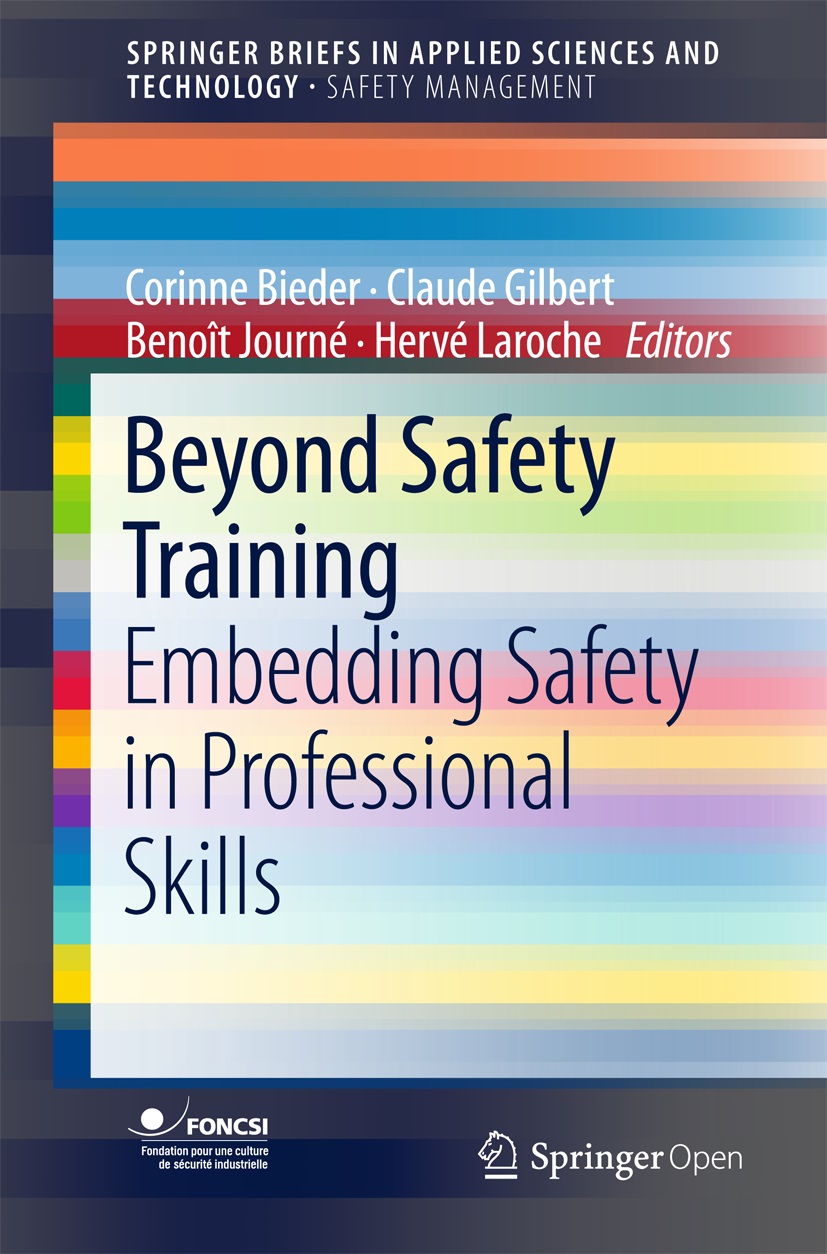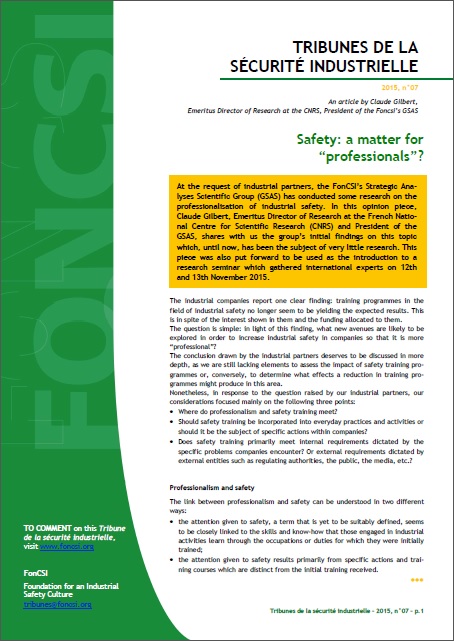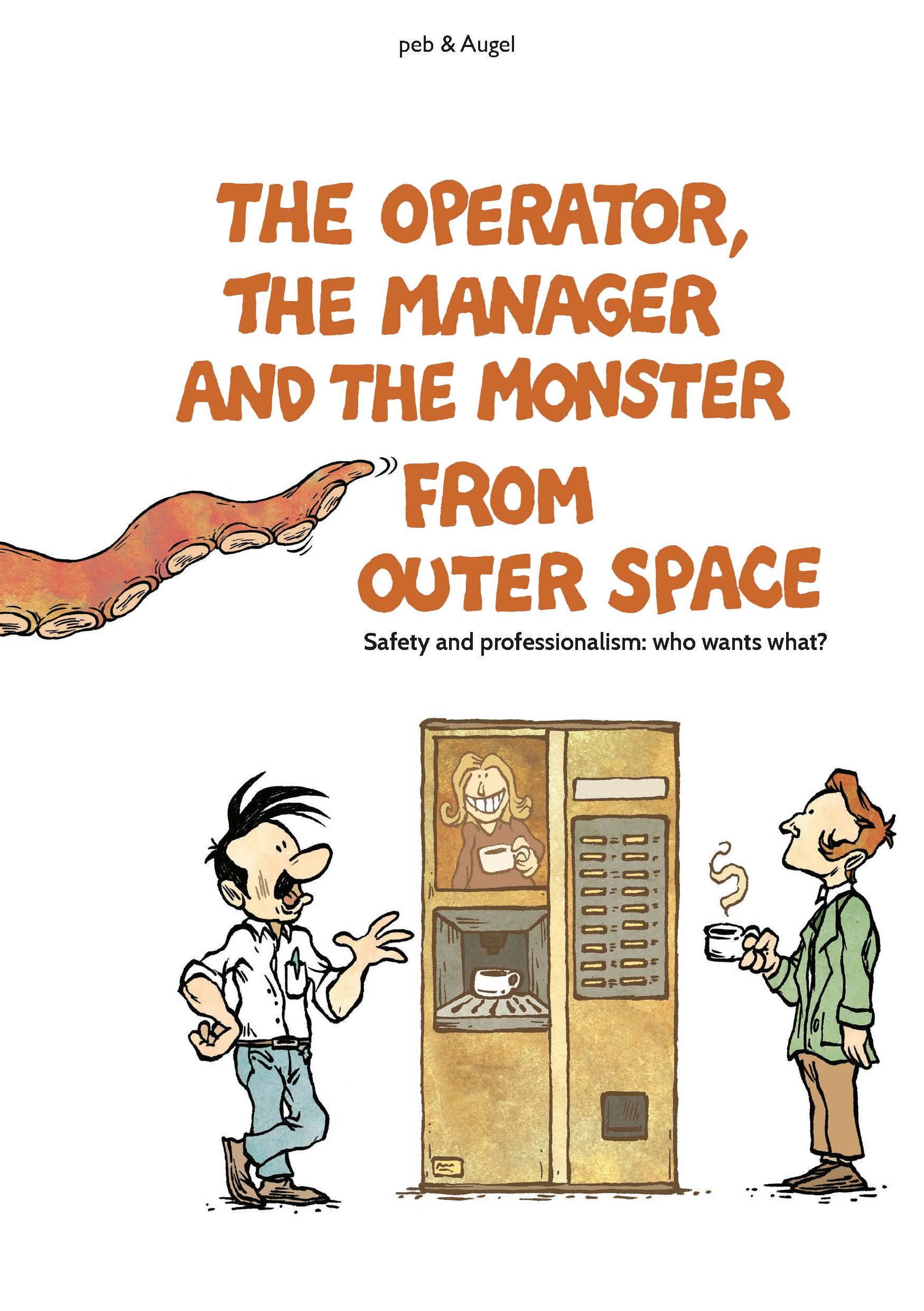Questions
How can we improve recruitment, and raise awareness of the importance of safety culture training in academic and university curricula (training for engineers, researchers, administrators, managers, HR)?
What are the theoretical support materials/frameworks? How have these theoretical and methodological frameworks evolved over the past 15 years?
An international comparative and critical analysis. How are these curricula perceived after a few years’ professional experience by the manager or the employee? What lessons can be drawn for the development of training courses and trainers to improve safety?
Regarding in-house training, how can we assess (not only its design, but its effectiveness and acceptance) by staff at all levels? What lessons can we draw from different practices (mentoring, e-learning)?
What lessons can be learned for the development of training courses and trainers?

The strategic analysis
The Foncsi conducted a strategic analysis on this subject between 2015 and 2018.
Methodology
Strategic analysis is a working methodology developed by the Foncsi. It aims to ensure high-level research over a particularly short period (18-24 months), and to establish a continuum of innovation between research and industry.
There are four key stages:
- The state of the art
- The international academic seminar
- Comparison with industrial practices
- The industrial seminar
Find out more about strategic analyses
The project team for this analysis
Experts from companies and associated organizations
- Franck Guarnieri (CRC Mines ParisTech)
- Philippe Haller (Arkema)
- Nicolas Herchin (Engie)
- Pol Hoorelbeke (TotalEnergies)
- Jean-Paul Labarthe (EDF)
Scientific experts
- René Amalberti, Foncsi manager
- Corinne Bieder, Enac
- François Daniellou, Scientific Director Foncsi
- Claude Gilbert, CNRS
- Benoît Journé, University of Nantes
- Caroline Kamaté, Foncsi program manager
- Hervé Laroche, ESCP Europe Paris
Call for proposals
A call for scientific proposals was also launched in 2016 on this research theme.
The project team for this call for proposals
Experts from companies and associated organizations
- Philippe Haller (Arkema)
- Nicolas Herchin (Engie)
- Pol Hoorelbeke (TotalEnergies)
- Jean-Paul Labarthe (EDF)
Call for proposals management group
- Philippe Billet, IDE Lyon
- Germain Sanz, Académie des technologies (Chairman)
- André Savall, University of Toulouse, LGC-INPT
- Arnaud Stimec, University of Nantes, LEMNA
- Gilbert de Terssac, CNRS
Selected research projects
- Transformation of activities, operators and organizations: proposals for training in and through resilience
Project led by Germain Poizat (University of Geneva, Switzerland) - Evaluating safety training systems: work, actors, pathways
Project led by Catherine Delgoulet (Université Paris Descartes, France) - Assessing the contribution of digital technologies to risk management training in high-risk industries
Project led by Alain Garrigou (IUT Bordeaux, France) - Safety professionalization: an exploratory qualitative and quantitative study
Project led by Wim Van Wassenhove (Mines ParisTech, France) and Hervé Laroche (ESCP Europe, France) - Becoming prevention actors: designing systems to develop the ‘power to act’ in safety
Project led by Lucie Cuvelier (Université Paris 8, France) - A multimethod system for the assessment and training of teamwork in simulated scenarios
Project led by Fabrizio Bracco (University of Genoa, Italy)


